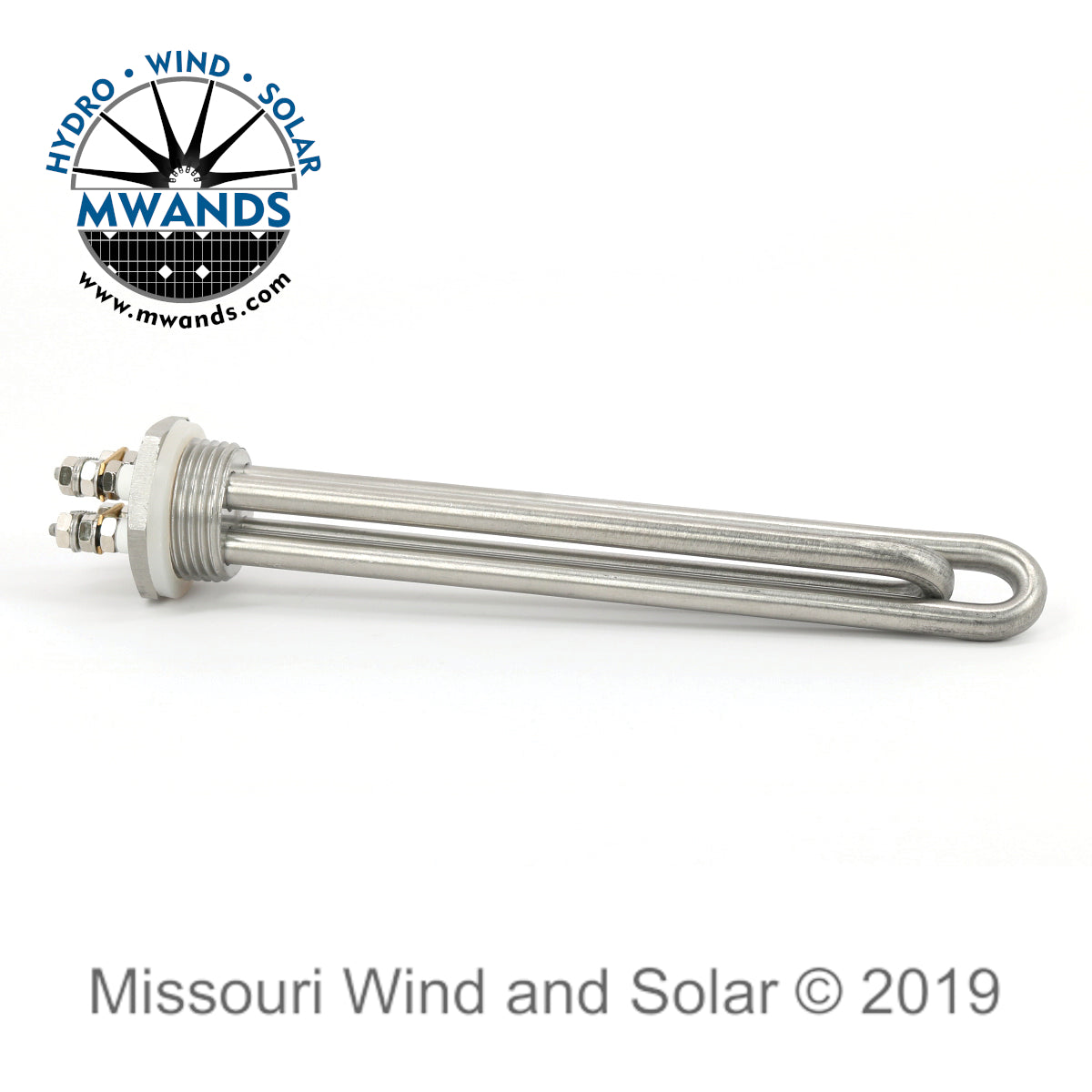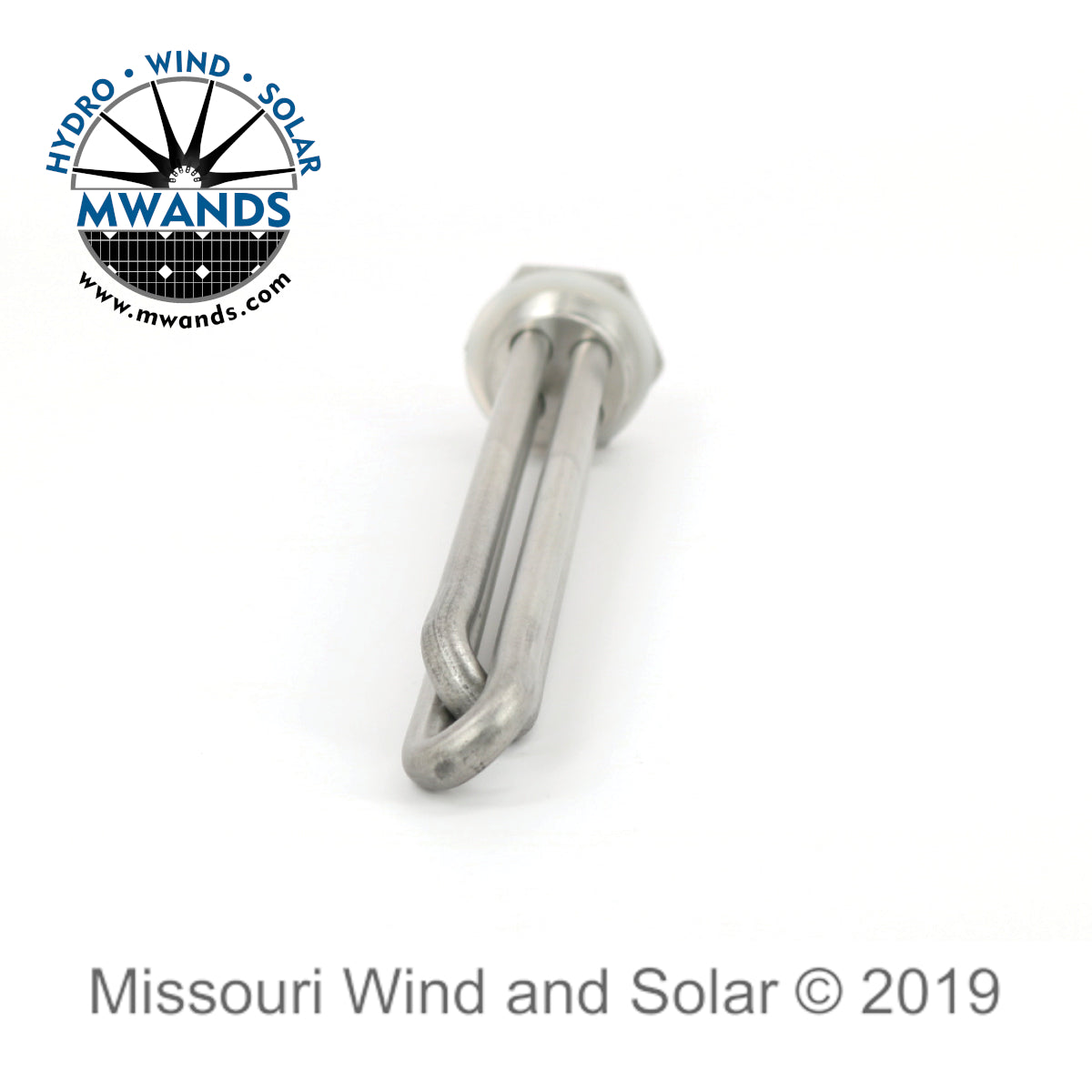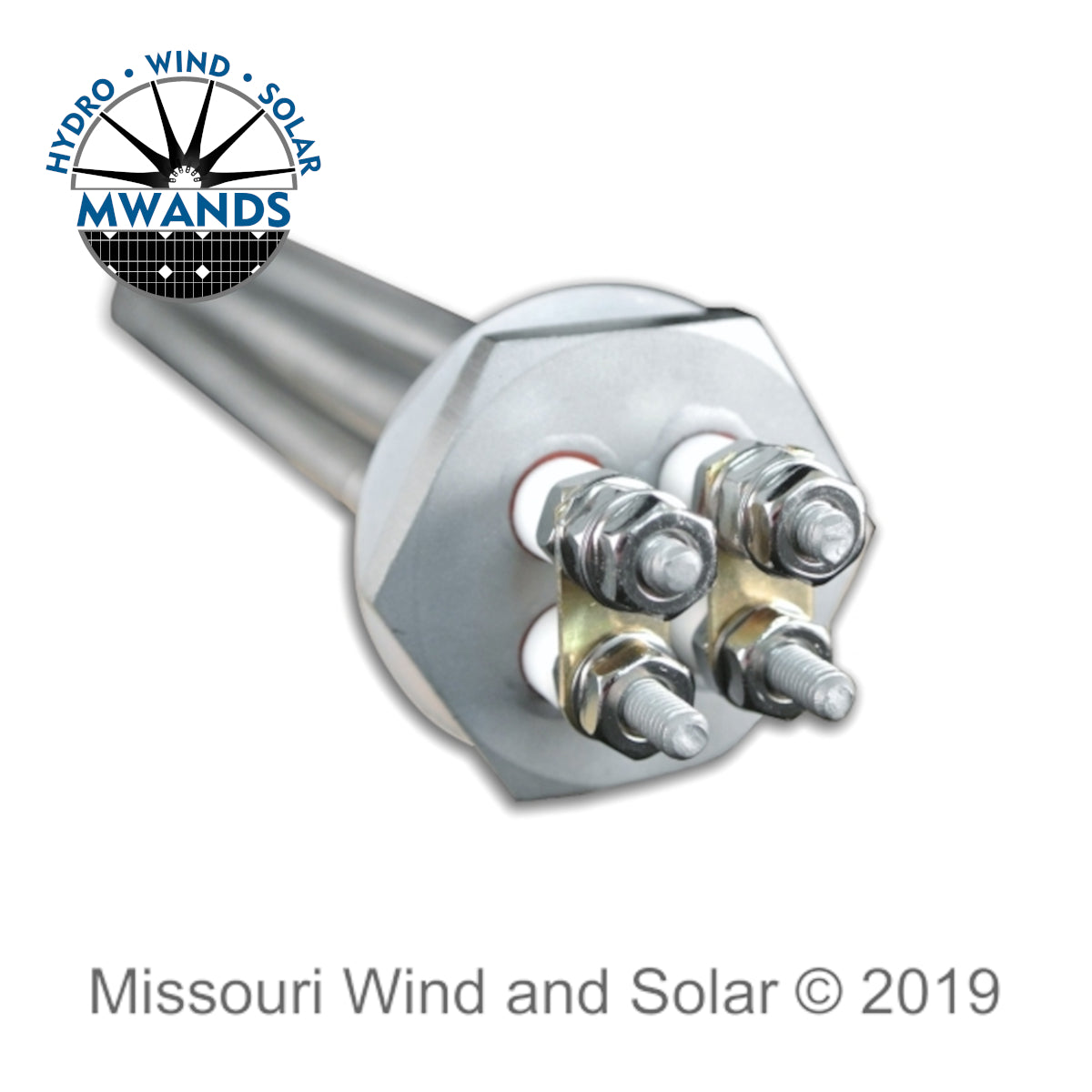


- description
9 3/8 Inch Dual Power Submersible Water Heating Element
Can be used directly with batteries, solar panels, hydroelectric generators, as a wind turbine dump diversion load. Double elements provide even more surface area, allowing for faster heating than single element designs.
DO NOT USE GRID POWER AS IT WILL IMMEDIATELY DESTROY THE ELEMENT!
Can also be used as a solar panel dump load. See our wire and cable section for selecting a power cord for the heater from your wind turbine, hydroelectric generator, solar panels, or battery setup, etc.
Element Specifications:
- 12 Volts 700 Watts
- Fits standard water heaters with a 1" NPT or your own custom heater tank.
- Stainless steel materials
- The surface load of the heating pipe is 2W/cm²
- Pipe Diameter is 8.0mm
Uses:
- Livestock water tank deicer (low amp draw means you won't drain your battery as fast). For keeping dog, cat, chicken, and other domestic animals' water from freezing.
- Standard American water heater element replacement for on or off grid applications
- Water preheating
- Campers, Motor homes
- Emergency hot water
- Portable commercial, industrial machines and equipment
- Runs off your car battery for portable hot water anywhere
- Direct wind and solar applications
- Concrete mixing trucks
- Use for DIY solar batch water heaters
- For heating motor oil, vegetable oil, or most any other oils or liquids
- and many, many more uses where heat or diversion loads are needed.
Low voltage DC water heating elements are much safer than 110 volt
DC Water Heating
Question: How many watts are required to heat one gallon of water up one degree?
Answer: It requires 2.4705 watts for one hour to heat one gallon by one degree.
Using a Water Heating Element as a Dump/Divert Load:
Heat water directly using a wind turbine generator (with or without a battery bank). Wind turbine generators are used primarily for electricity generation.
The power used can be stored in a battery bank or connected to the main supply using a suitable grid tie inverter. In very strong winds, and/or when the batteries are fully charged a wind turbine may generate more current than the batteries can handle.
Therefore a dump load is often used to divert the extra energy to heat water so it is not wasted and so that the wind turbine does not spin so quickly that it is damaged.
Note: If you have a gas hot water heater you may wish to put an electric unit ahead of it. This way the gas heater is always being fed hot water so it does not turn on as often and for shorter periods of time when it does.
Diversion Load DC Water Heating
Pictured below is a typical 12 Volt water heating element which can be screwed into an immersion heater draincock hole. When used as a diversion (dump) load, such an element is connected to the batteries via a charge regulator. When the regulator detects that the batteries are fully charged, it diverts the generated electricity to the element which heats water.

Click here to read more information about DC water heating elements.






